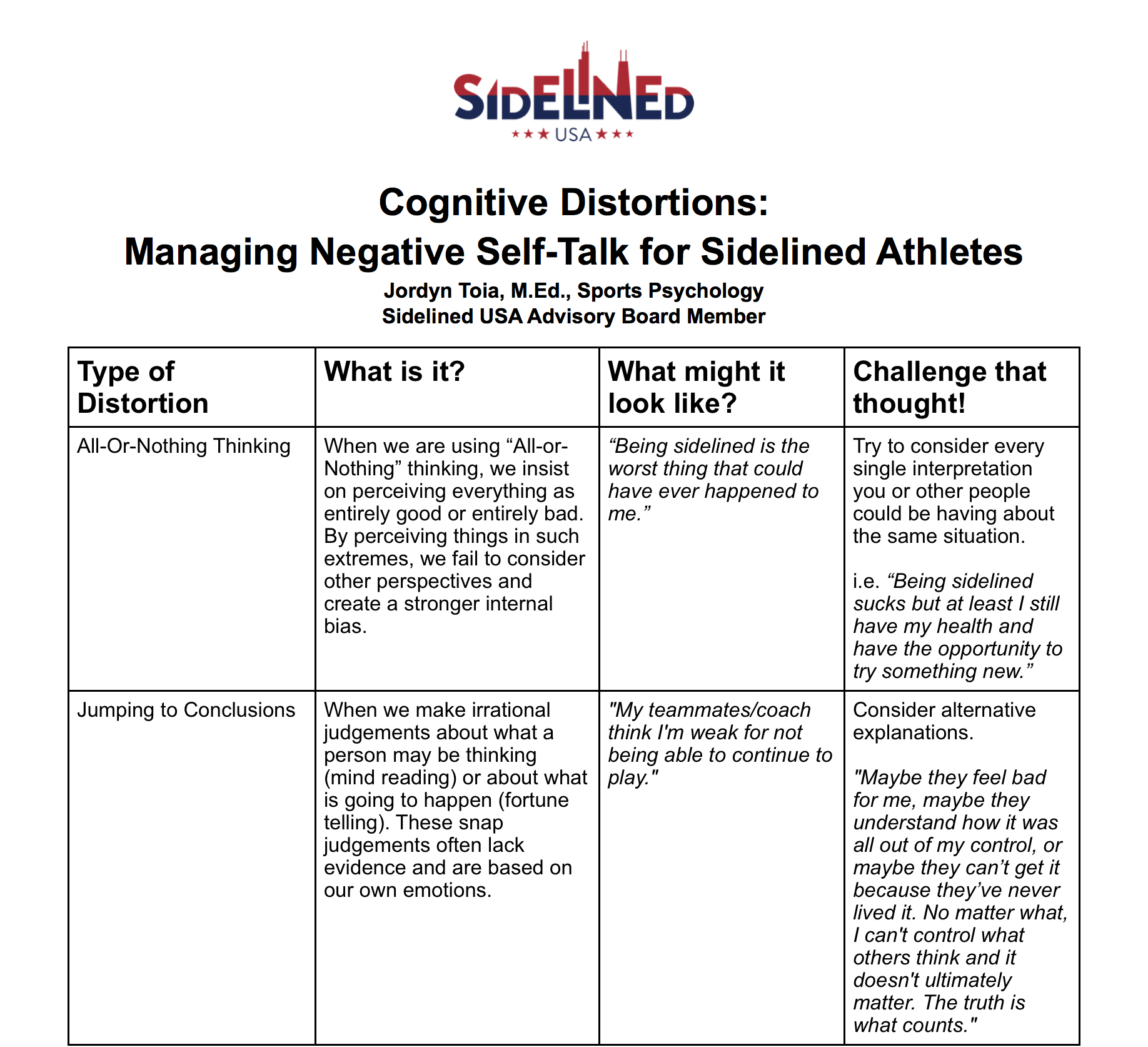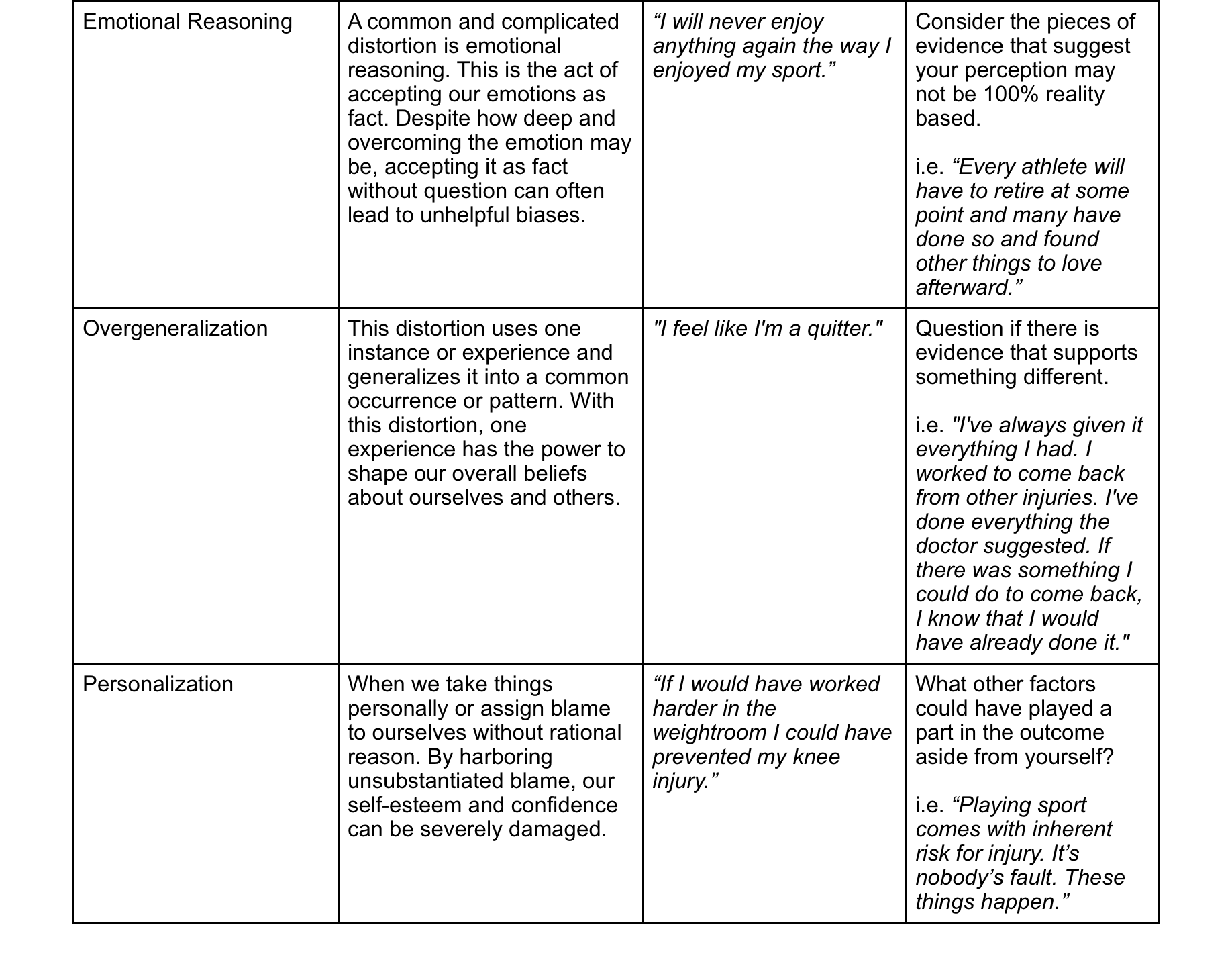Becoming Sidelined: Managing Negative Self-Talk
by Jordyn Toia, M.Ed. Sports Psychology
Being forced to retire from competing in a sport that you love is objectively heartbreaking. You’re allowed (even encouraged) to let yourself feel every emotion that comes with grieving the loss of a really important aspect of your life and identity. What remains important throughout this process though, is that you treat yourself with kindness and patience. You owe it to yourself to alter any internal-dialogues which threaten to convince you that these circumstances are more disastrous than you are strong.
As we begin to analyze our internal dialogues, we should be wary of unhelpful thought patterns that have manifested themselves so deeply that they impact our entire perception of the world, our experiences, and ourselves. These thoughts are not reality-based and overtime they are reinforced, resulting in biases, irrational thoughts, and groundless beliefs. These are called cognitive distortions. The chart below lists some types of cognitive distortions, what they entail, and how to address them.



As always, taking the time to journal can be really impactful when beginning to make changes in your thought patterns. Consider taking the time to log your unhelpful thoughts. Then, with each thought, write down all the facts (not opinions or guesses) that confirm this thought and all of the evidence that challenges it.
By taking other possible perspectives into consideration, catching ourselves before jumping to conclusions, and deciphering our emotions and opinions from the facts, we can begin to tackle all the thoughts that are hindering our happiness and success.
Disclaimer: This article is for informational purposes only. Neither Sidelined USA nor its affiliates provide clinical or medical care of any kind via their relationship with Sidelined. At no time should a user have an expectation of clinical care or professional services offered or rendered.
Jordyn Toia
Content contributor, Sidelined USA
“I jumped at the opportunity to help an organization that works to provide care and resources to such an underserved population of former athletes. In society, we tend to value athletes for not much more than their athletic prowess and physical productivity. Athletes are whole human beings and should be treated as such. I think a great way to begin to make this shift is to create dialogue, provide resources, and validate those who have been forced to reinvent their lives and identities without competing as athletes in their sports.”


